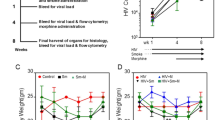Abstract
The first line of defense against invading bacteria is provided by the innate immune system. Morphine and other opiates can immediately disrupt the body’s first line of defense against harmful external bacteria. Opiate, for example morphine, abuse degrades physical and physiologic barriers, and modulates phagocytic cells (macrophages, neutrophils) and, nonspecific cytotoxic T cells (γδ T), natural killer cells, and dendritic cells, that are functionally important for carrying out a rapid immune reaction to invading pathogens. In vitro studies with innate immune cells from experimental animals and humans and in vivo studies with animal models have shown that opiate abuse impairs innate immunity and is responsible for increased susceptibility to bacterial infection. However, to better understand the complex interactions between opiates, innate immunity, and bacterial infection and develop novel approaches to treat and even prevent bacterial infection in the opiate-abuse population, there is an urgent need to fill the numerous gaps in our understanding of the cellular and molecular mechanisms by which opiate abuse increases susceptibility to bacterial infection.
Similar content being viewed by others
Abbreviations
- NK:
-
natural killer
- DCs:
-
dendritic cells
- AMs:
-
alveolar macrophages
- APCs:
-
antigen-presenting cells.
Author information
Authors and Affiliations
Corresponding author
Additional information
Received: 2008.05.23, Accepted: 2008.07.28
About this article
Cite this article
Wang, J., Barke, R.A., Ma, J. et al. Opiate abuse, innate immunity, and bacterial infectious diseases. Arch. Immunol. Ther. Exp. 56, 299–309 (2008). https://doi.org/10.1007/s00005-008-0035-0
Published:
Issue Date:
DOI: https://doi.org/10.1007/s00005-008-0035-0




